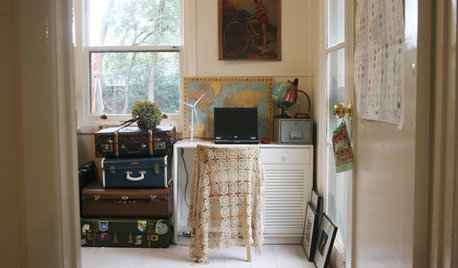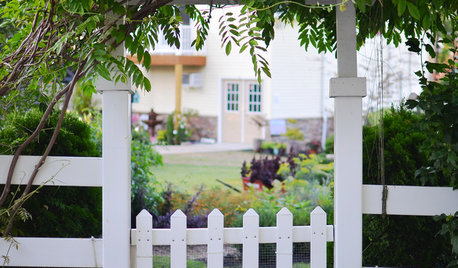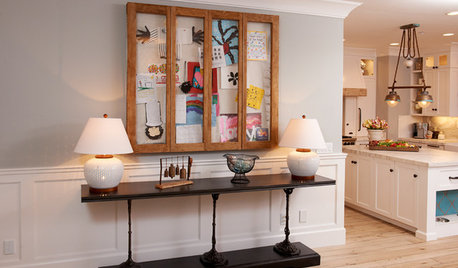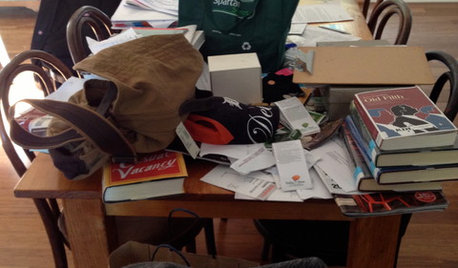I found this very helpful:
Angry Emotions
Don't answer anger with anger:
Avoid responding to your child's anger with anger of your own. Your anger will tend to escalate your child's sour mood. Instead, control your own anger first. Reply to your child in a calm, even-tempered voice. You will be better able to direct your child's actions, and you'll be modeling the behavior you wish to see in your child.
Good Ways/Bad Ways:
Your child needs to learn that while angry emotions are normal, there are acceptable and unacceptable ways of dealing with them. You can help your child learn this by acknowledging the reason he's angry. Often, just knowing that you understand his feelings can calm him down. As an example, what if your child is angry because his brother took his bike without asking, and he's shouting and swearing? Calmly acknowledge the reason for his anger by saying something like, "I know it's frustrating when Alex takes your things without asking." This will often cause a pause in your child's behavior, as he ponders this new response from you. Next, ask a question that directs your child's thinking in a more productive way, "How do you think you can get him to remember to ask?" If he responds in an angry way, prompt him in a more positive direction, "Getting angry won't get your point across. What do you think will?" Stay with him and guide him through the resolution process.
Time Out:
If a child's angry behavior is out of line, immediately stop him and send him to his room to cool off. Don't try to deal with the behavior at the peak of his anger. Later, when he's calmed down, take the time to let him know, specifically, what he did that you disapprove of. Engage him in a conversation to develop a plan for avoiding the behavior in the future.
Teach:
Talk to your child about his anger. Tell him that it's important for him to learn how to control his temper. Suggest that the first thing he does is learn to get control of himself before he does or says things that are inappropriate. Let your child know, in advance, that next time he explodes in anger you'll help him by asking him to go to his room to cool off. Advise him that if he doesn't immediately do as asked he would lose a privilege for the rest of the day, such as using the telephone, watching TV or playing with friends.
Have a plan:
Help your child develop an "anger control plan." At a quiet time, have a discussion about anger. Brainstorm to come up with a list of things he can do when he feels himself losing control. As an example, he could put on his headphones and listen to music, go outside and throw a few basketballs, or take a shower. Have him write down the ideas on an index card and put them in a handy place. Encourage and support him when he uses some of the ideas. You might choose use a code word that you can use to let him know his anger is getting out of control and he needs a cooling off period. Either he or you can use the word to signal a pause in the conversation, and allow him time to get himself together.
A Parent's Anger Question:
I find myself getting angry with my kids much too often. I can't seem to help myself - they really know how to push my buttons. When they purposely disobey me, or are outright disrespectful, I fly off the handle. How can I control my own anger when it's the kids' misbehavior that makes me so mad?
Think about it:
Is it your children's misbehavior that makes you angry? Or is it your view of their behavior that creates angry feelings? There's a big difference. The first question suggests that you have no control over your emotions or actions. The second implies that by changing your view you can change your reaction.
Time Out is for big people too:
Put some space between you and the child who's pushing your buttons. When you feel your anger rising, either put your child in time out, or put yourself there! A few minutes away from the source of your angry feelings can help you calm down enough to address the situation rationally. Nothing can be solved in a fit of anger. You'll be better off if you take the time to calm down and then approach your child from a position of strength.
What's normal? Learn more about child development by reading a book or taking a class. If you learn that your child's current behavior is age-appropriate and normal, you'll be less likely to overreact to the behavior. It's amazing how alike children are, and just knowing that your kid is responding in a typical way can help you handle the issue with a level head.
Don't hit:
If your anger causes you to strike out at your child, you'll need to learn ways to control your outburst. A creative solution is to channel your physical reaction into a burst of applause! Seriously, when you feel yourself about to strike, simply clap your hands, good and hard and fast, while you express your feelings of anger. Try it now! Pretend you're angry, clap your hands, and tell your imaginary child how you feel. You'll find that in addition to releasing your pent-up anger it sends a very clear message to your child.
Act * don't react:
Take the time to think about the things that make you angry. Put together a list of family rules. Enumerate the consequences for breaking the rules. Communicate clear expectations to your children. Decide in advance what methods of discipline you will use. If you have a plan up front, you'll be less likely to lose control when your children misbehave. Hug 'em: When you find yourself ready to put your hands around your kid and shake him, DO put your hands around him * and love him. Embrace him in a hug. If possible, do this in front of a mirror or reflective window. A few minutes of quiet, while you embrace your child, will often temper your angry feelings with the strong feeling of love between you. Elizabeth Pantley is a parent educator and frequently quoted expert who presents lectures across the United States. She is the mother of four children (who sleep all night) and is also the author of Perfect Parenting, Kid Cooperation, Hidden Messages, and her most current, The No-Cry Sleep Solution.













apoem
rob333 (zone 7b)
Related Discussions
WANTED: Bubble or plain envelop? Is it worth the money?
Q
So Angry at my husband
Q
How to help a friend in an emotional abusive relationship
Q
Needing a shoulder and some advice...(long)
Q
Jainie_SOriginal Author